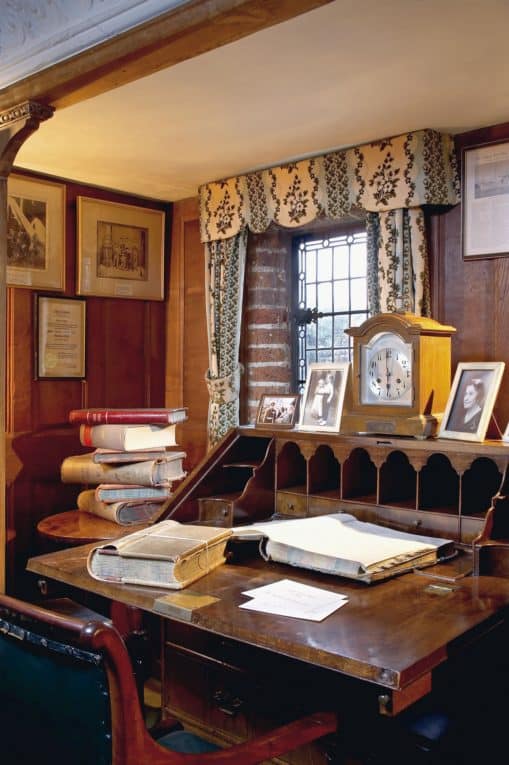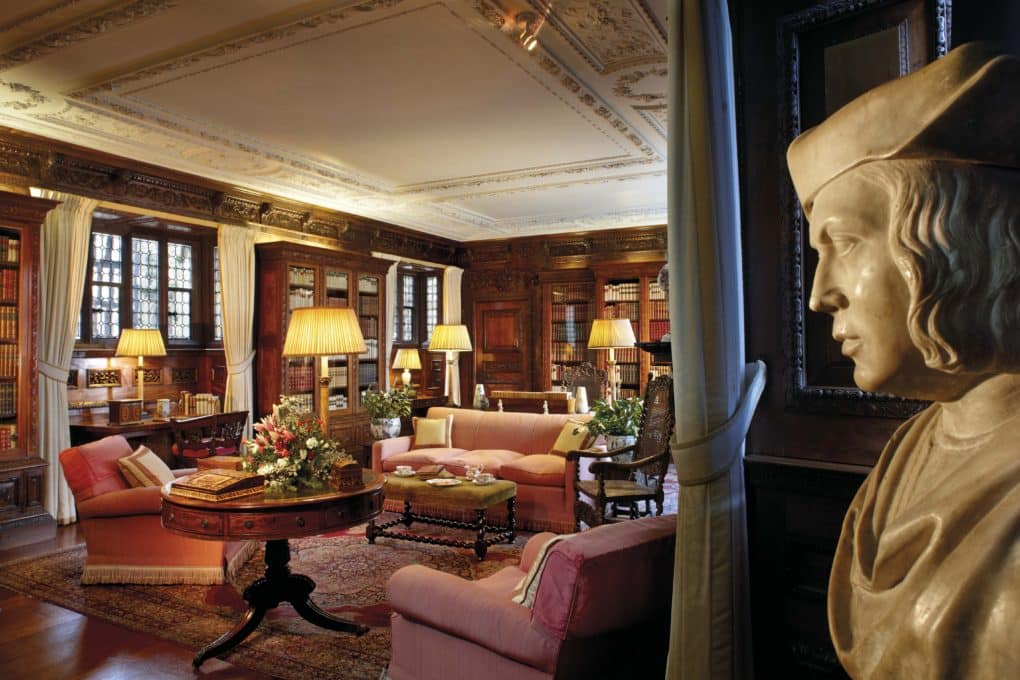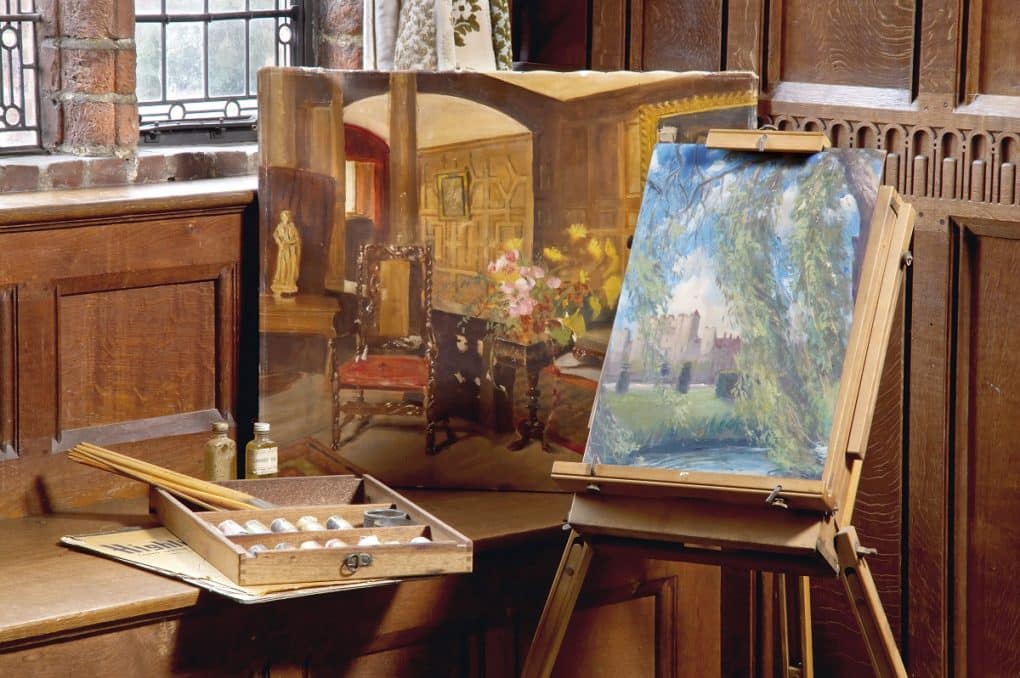

The theme for this week’s #Feature Fridays with Historic Houses is literature.
Literature plays a huge role at Hever Castle. Whether in the Library, surrounded by former owner William Waldorf Astor’s collection of 2,500 leather bound books, in the Book of Hours room where we display Anne Boleyn’s very own signed prayer books, or in the guest records for the Astor Wing (now a 5* bed and breakfast), where there is the handwritten room allocation for a visit by Sherlock Holmes creator Sir Arthur Conan Doyle.
One of the more underrated items at Hever Castle, however, is the collection of letters sent to John Jacob Astor from well known figures of the 20th century.
At the time, John Jacob (the second son of William Waldorf Astor, who inherited Hever Castle on his father’s death in 1919) was the owner of The Times newspaper, which gave him almost unparalleled access to some of the most important people in the political, literary and showbiz worlds. For example, there are letters from Prime Minister Edward Heath, the actor Douglas Fairbanks Jr and from the playwright George Bernard Shaw, who writes to politely decline an invitation, citing his age (in his nineties) as a reason, and explaining that he would be a ‘Banquo’s ghost’ among the comparatively younger guests.
Kept separately from these letters, however, are three telegrams and a gift from close Astor friend, Sir Winston Churchill, whose country estate of Chartwell is situated near to Westerham, just a 10 minute drive from Hever. Winston Churchill famously suffered from bouts of depression that he referred to as ‘the black dog,’ and painting was one of the ways he helped to alleviate these episodes. The gift in question is a portable painting case and easel, which Astor used to create the two paintings also on display. In one of the telegrams, Churchill (who has signed himself off in pen as ‘your friend Winston Churchill’) remarks on the quality of Astor’s work in comparison to his own and urges John Jacob to hold a small exhibition to show off his achievements.

Hever Castle’s Learning and engagement assistant Harriet Waldron said: “While these telegrams are often overlooked, I think they are a wonderful display of friendship between two men of huge importance, who took pleasure in the simple aesthetics of the countryside around them, and, perhaps more importantly, in the company of one another.”
If you enjoyed this item on literature then why not discover the previous #Feature Fridays news items.
Book your visit to Hever Castle & Gardens.
Within the grounds of the Hever Castle Estate, there are two opportunities for you to stay the night with us.
Hever Castle has played host to many important events and celebrations for over 600 years. In 1903 when William Waldorf Astor set about restoring Hever Castle to its former glory, he added the Astor Wing, to accommodate his family and guests, before creating a lake and the spectacular Italian Garden to house his impressive collection of ancient Greek and Roman statuary.
There are multiple places to eat & drink across the Hever Castle Estate. Select between the Castle & Gardens and Golf Club below to discover more.
Set in the mature grounds of the Hever Castle Estate, Hever Castle Golf Club is a 27 hole Kent golf course that will encourage and inspire all golf enthusiasts.
Set in the mature grounds of the Hever Castle Estate, the Wellbeing Centre consists of five smart treatment rooms.